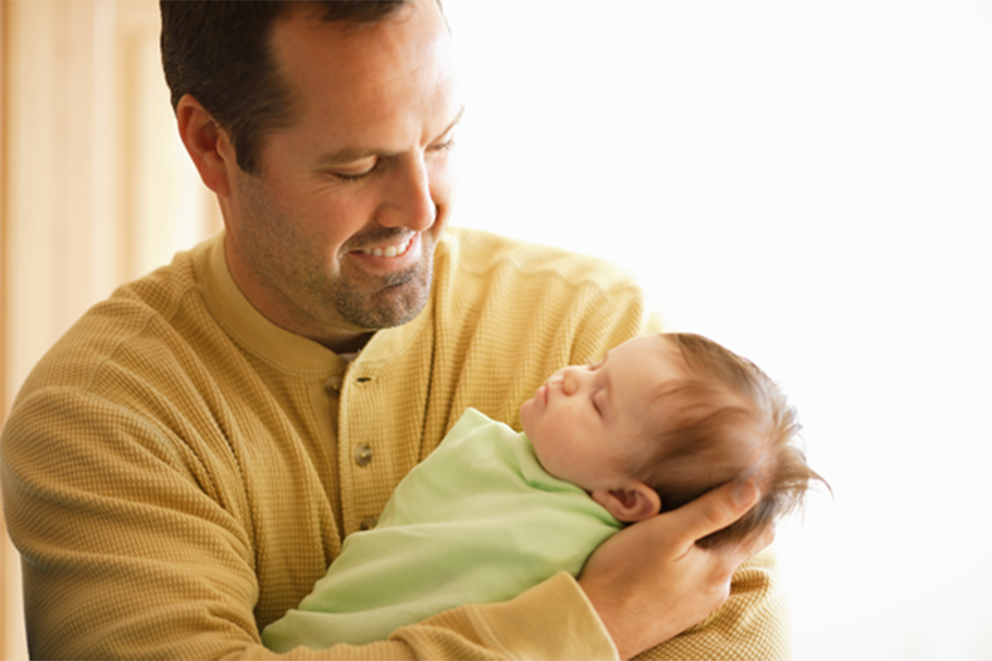New fathers are affected by postpartum depression, too. Learn how men can best cope with the transition into fatherhood.
It had been a few months since the birth of his son, but “Jake” couldn’t seem to shake his feelings of confusion, anxiety, and irritability.
“The baby only wanted to nurse, and I felt useless as a co-parent,” said the Northern California Kaiser Permanente member.
Unlike the baby blues, which typically go away a few weeks postpartum, his postpartum depression (PPD) is a common mental health condition.
Cosette Taillac, LCSW, national strategic leader for Mental Health and Wellness at Kaiser Permanente, is Look insideKP Northern California’s source for information on this common yet often overlooked mental health condition in men.
Dads, You’re Not Alone
According to the American Congress of Obstetricians and Gynecologists (ACOG), 1 in 7 women will experience PPD, typically starting within 3 weeks after the baby is born. One in 10 men suffer from symptoms of depression, typically starting 3 to 5 months after the birth of their baby. PPD can occur up to 1 year after a baby is born.
New financial burdens, marital stress, and a lack of sleep are just some of the many lifestyle changes that contribute. Also, while moms are focused on their own emotional well-being and physical recovery postpartum, dads tend to keep in their own emotions.
Studies have shown that paternal depression can have a detrimental effect not just on dad’s mental health, but the emotional, cognitive, and social development of a child in their first few years.
Treating a new father for PPD can affect the overall health of a family. It’s important for dads to address these mood changes as soon as possible.
Take Good Care
It’s crucial to find time for self-care during the postpartum period — eating healthily, getting some quick exercise, and finding time to sleep.
Mom and dad should alternate nights of sleep so they’re not both up at the same time with the baby. Also, cutting down on activities and prioritizing more sleep and rest is hugely beneficial.
In fact, 70 percent of the time mood disorders can be treated just by getting better sleep.
Get Connected
Men tend to have smaller support circles in general, and if a man is feeling down, he also tends to not talk about it with friends.
To help combat this, dads can join a social media support group. The online format fits in well with the hectic lifestyle of a new parent and the anonymous setting may help some men feel safe expressing their feelings.
There’s a Light at the End of the Tunnel
In addition to the strategies mentioned above, in-person cognitive behavioral therapy is an option, starting with one’s general practitioner for guidance.
For those who are suffering from moderate to severe postpartum depression, medication, along with therapy, is also quite effective. People generally start to feel better 3 to 12 weeks after starting treatment.
As men enter fatherhood, it’s important to remember that taking care of mental health is a way of being a really good dad. Addressing it is a sign of strength.
Learn more about paternal postpartum depression and visit an online forum for support.




